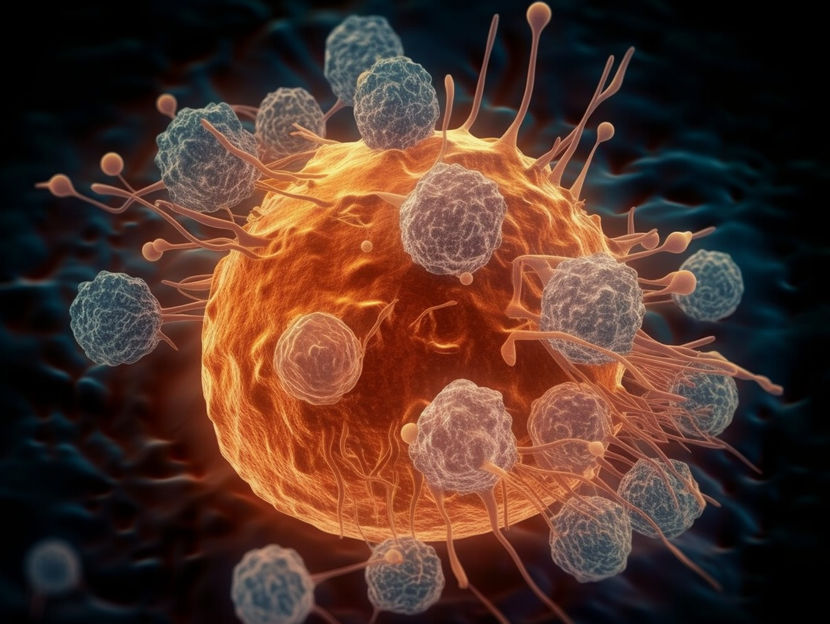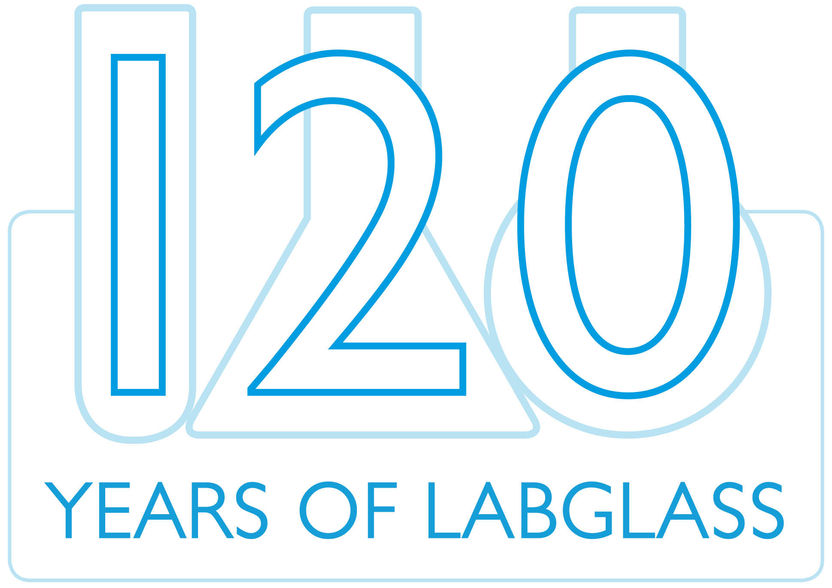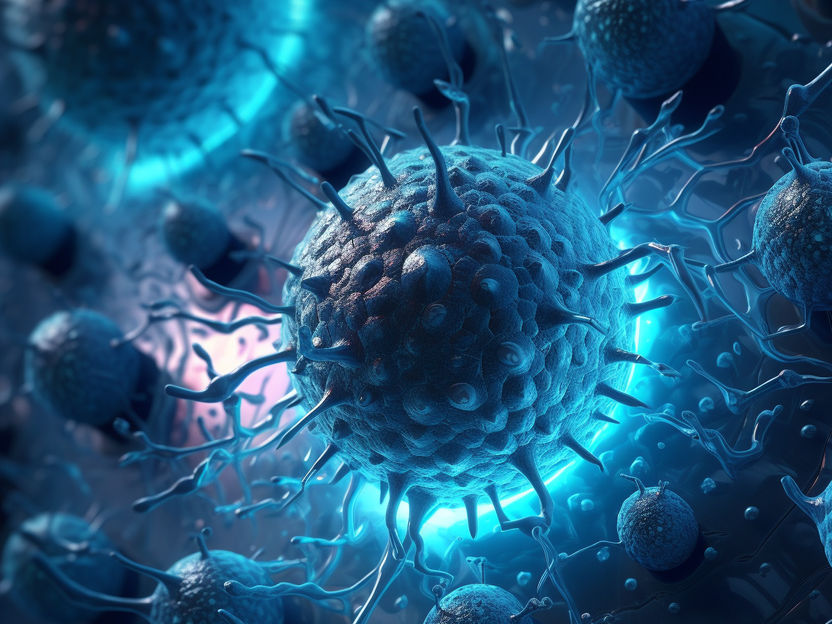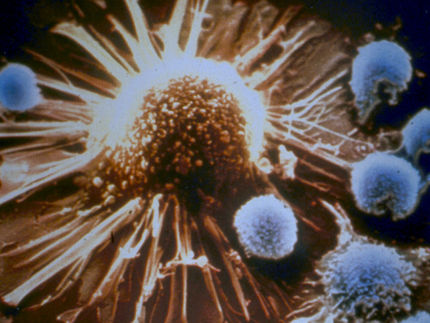High honor for pioneers of cancer immunotherapy
Meyenburg Prize goes to Katalin Karikó, Uǧur Șahin and Özlem Türeci
The Meyenburg Prize 2020/21, endowed with 100,000 €, goes to Katalin Karikó (University of Szeged and Pennsylvania), Özlem Türeci and Uǧur Șahin (BioNTech AG and Universitätsmedizin Mainz). The researchers receive the award for their outstanding contributions to the development of vaccines and immunotherapies against cancer. The prize will be awarded on March 21, 2023, at the annual symposium of the Helmholtz Institute for Translational Oncology (HI-TRON) Mainz.

Symbolic image
Computer-generated image
"There are hardly any scientists in the world who have as much expertise in cancer immunotherapy as Özlem Türeci and Uǧur Șahin," said Stefan Fröhling, board member of the Meyenburg Foundation and managing director of the NCT Heidelberg, explaining the selection of the award winners. "Both are pioneers in the field of mRNA-based cancer vaccines. In turn, this technology was only made possible by the fundamental work of Katalin Karikó. The 2020/21 Meyenburg Prize recognizes the outstanding achievement of the three researchers that has the potential to significantly improve the survival of cancer patients in the future."
Özlem Türeci and Uǧur Șahin are developing different types of immunotherapies and are internationally recognized pioneers in the development of cancer vaccines. Vaccinating against cancer is a very different challenge than developing a vaccine against a virus. Viruses are fundamentally foreign to the human immune system. Tumor cells, however, which arise from normal tissue, carry only a few cancer-typical features that allow the immune system to distinguish them from a healthy cell. In decades of research, Türeci and Șahin have succeeded in identifying such features, which, moreover, are capable of activating the immune system.
The compelling idea behind the concept of mRNA-based cancer vaccines: Messenger RNA molecules (mRNA) enable the body to produce the tumor proteins itself, which stimulate the immune system to fight the cancer. The great advantage of this approach is that it makes it comparatively simple and fast to produce even highly individualized tumor vaccines. To this end, the tumor genome of individual patients is first searched for mutations that distinguish cancer cells from healthy cells and that are possible target structures for a therapeutic vaccination. mRNA molecules carrying the building instructions for these mutated proteins can be produced as individual therapeutic cancer vaccines in the laboratory.
But vaccinating with mRNA is anything but trivial, since the human immune system destroys mRNA molecules. This initially seemingly insurmountable hurdle was only overcome by a discovery made by Katalin Karikó: She found that replacing one of the four RNA building blocks with a chemically related molecule (uridine with pseudouridine) greatly reduces the immunogenicity of mRNA. The biochemist thus paved the way for medical applications of mRNA technology.
In the meantime, several mRNA vaccines against differ checkpoint inhibitors, agents that additionally boost the immune response against tumors. Personalized cancer vaccines that immunize against a patient's individual tumor characteristics are also already being tested in advanced trials - in pancreatic cancer, melanoma, and colorectal cancer.
"This year's three Meyenburg Prize winners are absolutely exceptional scientists. The fact that DKFZ can collaborate with Özlem Türeci and Uǧur Șahin in the development of immunotherapies at the Helmholtz Institute for Translational Oncology (HI-TRON) Mainz is a great opportunity to achieve progress that will benefit cancer patients," says Michael Baumann, Chairman of the Board of DKFZ.
Most read news
Other news from the department science

Get the life science industry in your inbox
By submitting this form you agree that LUMITOS AG will send you the newsletter(s) selected above by email. Your data will not be passed on to third parties. Your data will be stored and processed in accordance with our data protection regulations. LUMITOS may contact you by email for the purpose of advertising or market and opinion surveys. You can revoke your consent at any time without giving reasons to LUMITOS AG, Ernst-Augustin-Str. 2, 12489 Berlin, Germany or by e-mail at revoke@lumitos.com with effect for the future. In addition, each email contains a link to unsubscribe from the corresponding newsletter.
Most read news
More news from our other portals
Last viewed contents
Evotec Extends Medicinal Chemistry Collaboration with Ono Pharmaceutical
KÖTTERMANN finds an investor
Novartis enters into agreement for exclusive US and Canadian rights to Fanapt, an FDA-approved oral therapy for schizophrenia

DURAN Group launches anniversary campaign to celebrate 120 years of laboratory glassware






















































